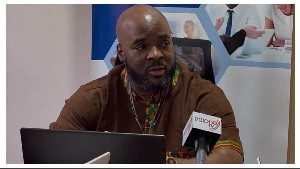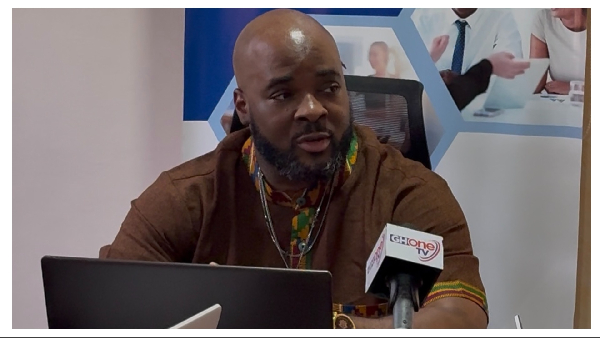 Corey Johnson is the CEO of OnPoint Virtual Assistants
Corey Johnson is the CEO of OnPoint Virtual Assistants
Ghana’s push toward a 24-hour economy will rely heavily on the country’s rapid adoption of artificial intelligence (AI) and automation, according to Corey Johnson, CEO of OnPoint Virtual Assistants.
Speaking at the launch of a new AI and automation pilot training program in Accra, Johnson said Ghana’s economic ambitions “will rise or fall on efficiency, and efficiency today is impossible without AI.”
The American-Ghanaian entrepreneur emphasised that private sector leadership, not government alone, will determine how quickly Ghana catches up with global technological trends.
“AI is not going anywhere; it’s here to stay. It’s up to individuals to catch up. It’s up to private businesses to catch up, to stay up to speed. And also for the government, when you look at the 24-hour initiative, you’re definitely going to need AI to be efficient,” he said.
“Because efficiency leads to productivity, which allows the economy to grow faster. The more efficient and proficient one is, the better off you’ll be in terms of growing the economy and advancing the 24-hour mandate by the president,” he added.
The event marked the launch of Ghana’s first AI and automation training pilot program, a partnership between Mobi9Tech Digital Agency and OnPoint Virtual Assistants.
The 12-week program will certify three Ghanaian trainees in GoHighLevel and Make.com, opening pathways to global remote work opportunities.
Johnson said the decision to start small was intentional.
“Three is the right number for a test run. We want to refine the system, monitor progress, and position them for international jobs immediately after they complete the program,” he noted.
The coordinators, young graduates who previously completed national service, already assist in managing 100–200 clients daily through OnPoint’s non-emergency medical transport business in the U.S.
“They are hardworking, adaptable, and they understand AI because they grew up in a digital world,” Johnson added.
When asked how fast Ghana can catch up to global AI adoption, Johnson replied, “Ghana can catch up as fast as Ghana wants. It depends on how quickly individuals and private businesses are willing to learn. AI is the future of economic survival; whether we adapt now or later determines our competitiveness.”
He stressed that young people with “trainable, ready minds” are Ghana’s biggest opportunity.
“If Ghana wants to compete in a 24-hour economy, or any global economy, AI must be at the center. And we’re helping build the workforce that will make that possible,” Corey Johnson concluded.
Janine Coogler-Hudson, CEO of Mobi9Tech, said the partnership is designed as an economic intervention, not just a training program.
“We’re giving Ghanaian youth the exact certifications that earn $40,000 to $80,000 globally,” she explained. “This is economic transformation. Our graduates can compete internationally from day one.”
Hudson compared today’s AI moment to the early dot-com boom, saying, “The people who took the internet seriously in the early 2000s became industry leaders. AI is at that same starting point today, and we’re preparing Ghanaian youth to lead, not follow.”
Unlike typical online AI courses, which have completion rates below 10%, the hybrid model combines self-paced online work with weekly live instructor sessions.
“Life happens. People lose motivation. But when you add accountability, mentorship, and community, they finish,” Hudson said.
